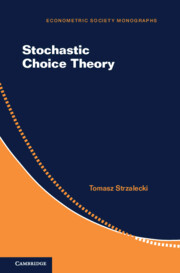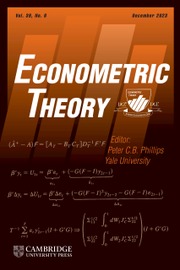Stochastic Choice Theory
Models of stochastic choice are studied in decision theory, discrete choice econometrics, behavioral economics and psychology. Numerous experiments show that perception of stimuli is not deterministic, but stochastic (randomly determined). A growing body of evidence indicates that the same is true of economic choices. Whether trials are separated by days or minutes, the fraction of choice reversals is substantial. Stochastic Choice Theory offers a systematic introduction to these models, unifying insights from various fields. It explores mathematical models of stochastic choice, which have a variety of applications in game theory, industrial organization, labor economics, marketing, and experimental economics. Offering a systematic introduction to the field, this book builds up from scratch without any prior knowledge requirements and surveys recent developments, bringing readers to the frontier of research.
- Provides a systematic introduction to models of stochastic choice used in a variety of disciplines
- Makes the theory accessible to readers without any training in economics and with basic training in mathematics
- Brings Decision Theory closer to how the data looks at the econometrician facilitating communication between disciplines. Includes inter-disciplinary and multi-disciplinary perspectives
Product details
January 2025Hardback
9781009512763
220 pages
236 × 161 × 16 mm
0.46kg
Available
Table of Contents
- Part I. Static Choice:
- 1. Random Utility
- 2. Basic Properties
- 3. More Models and Properties
- Part II. Risk and Learning:
- 4. Risk
- 5. Passive Learning
- 6. Active Learning
- Part III. Dynamic Choice:
- 7. Dynamic Choice
- 8. Dynamic Optimality
- 9. Response Times
- Part IV. Discrete Choice:
- 10. Discrete Choice
- 11. Random Consideration
- 12. Dynamic Discrete Choice
- Part V. Appendices: Appendix A. Additional Material and Proof Sketches
- Appendix B. Bibliography
- Appendix N. Notation.



